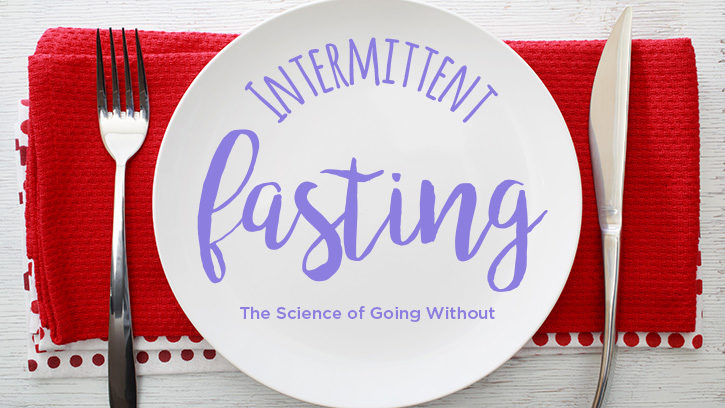Intermittent Fasting: The Science of Going Without
If you’ve recently had a conversation about dieting and weight management, then you’ve probably heard talk of intermittent fasting. But what is intermittent fasting? And is it healthy? Currently, this is quite an under-researched topic, with limited research in humans.
In other words, the answer is a little complicated, but let’s break it down together.
The Science of Going Without
Intermittent fasting is an eating pattern where you cycle between periods of eating and fasting. It’s a way to manage your weight and promote overall health, not by limiting what you eat, but by limiting when you eat.
There are several different intermittent fasting methods, such as:
- Daily intermittent fasting: 16-hour fast followed by an eight-hour eating period each day.
- Alternate day intermittent fasting: Cycle between 24-hour periods of eating and fasting.
- The 5-2 method, eat regularly for five days during the week and restrict food during 2 days to about 500 to 600 calories during the fasting days.
How does intermittent fasting work? To put it simply, when your body is digesting food, it’s in the “fed state.” This typically lasts three to five hours after your last meal. During this state, your body doesn’t burn fat as efficiently because your insulin levels are high and you are getting needed energy from food.
But if you don’t eat for around eight to 12 hours after your last meal, your body will enter the “fasted state.” Your insulin levels are low because your body has stopped absorbing food and, as a result, your body burns stored food energy (fat) more easily.
The Pros and Cons
So we know what intermittent fasting is and what it does, but the real questions are—is it healthy? Is it safe? Is it something you should do?
Your body is unique. And so is everyone else’s. Many people have tried intermittent fasting with great results, and they happily want to share their success with others.
But for many people, intermittent fasting is not the answer they’re looking for. For some people, it could even be a danger to their long-term health.
Let’s look at just a few of the many possible pros and cons of incorporating intermittent fasting into your daily life.
Pros:
- Promotes health and weight management. Some studies show intermittent fasting may be a promising way to lose weight and improve metabolic health.
- No calorie counting. With intermittent fasting, you don’t have to change what you eat in order to stay under your daily calories. By controlling when you eat, you have the freedom to eat what you want.
- It’s simple. Intermittent fasting makes your day simpler. When on a fasting program, you plan for and cook less meals. Some people find this simplicity liberating, as they have more time to devote to other activities they love.
Cons:
- Dropout rate is high. Recent studies show people may be more likely to quit an intermittent fasting routine before it can provide any real benefit to their health.
- You could develop bad eating habits. Intermittent fasting can be very stressful for some people. This, coupled with a lack of satisfaction, means they end up eating much more than they should during non-fasting periods.
- Dangerous for people with certain conditions. While safe for most people, intermittent fasting can have negative effects if you have diabetes, are pregnant or breastfeeding, or take certain medications. Make sure to always consult your physician before introducing any fasting routine or change in diet as part of your everyday life.
The Choice Is Yours
At the end of the day, there is not yet enough scientific evidence to prove or disprove intermittent fasting as superior to traditional dieting, nor to prove or disprove it promotes long-term health better than counting calories. On the flip side, there also isn’t any strong evidence it’s harmful to average adults, either.
If you have the willpower for an intermittent fasting routine, then more power to you. If not, there’s nothing wrong with a more traditional method of weight management.
Research is ongoing and, hopefully, we’ll soon know the benefit of intermittent fasting. Until then, the best diet is one you can maintain consistently—along with plenty of exercise.
Click here for more fun and useful articles on proper nutrition and healthy dieting.



Dr. Jason Fung has a lot of information on intermittent fasting on YouTube. He also has a couple of books on intermittent fasting, obesity and diabetes. All very interesting.
Can you use usana cellsentials when fasting? Im looking for that information. Say for example in the case of 5-2 method, can i still take in usana during the fasting days? It was known that the electrolyte imbalance may be rampant during fasting. When looking at the nutritional facts of usana, it contains potassium sodium magnesium which MAY be the turning point of the maintaining the electrolytes. Id like to hear your thoughts about this